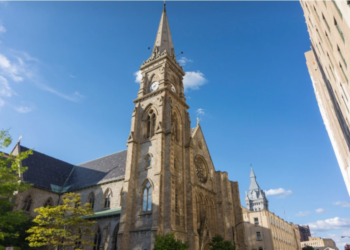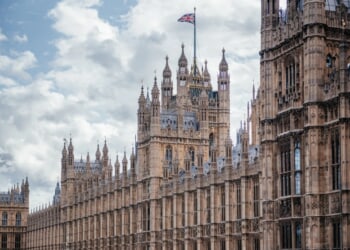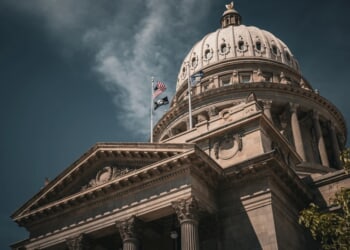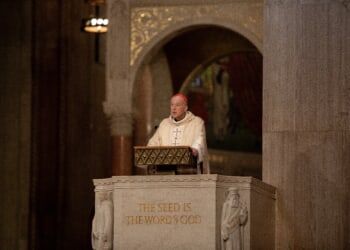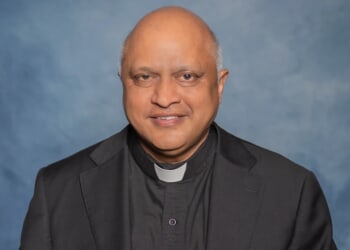Washington, D.C. Newsroom, Apr 11, 2025 /
12:22 pm
The U.S. Conference of Catholic Bishops (USCCB) urged Congress in a letter on Thursday to support the recently introduced Religious Workforce Protection Act (RWPA) in order to prevent U.S.-based priests from being forced to leave the country and remain away for years.
The bill “is desperately needed to ensure communities across our nation can continue to enjoy the essential contributions of foreign-born religious workers who lawfully entered the United States on a nonimmigrant religious worker (R-1) visa,” wrote USCCB President Archbishop Timothy Broglio and Migration Committee Chairman Bishop Mark Seitz of El Paso, Texas.
Workers with an R-1 visa are generally required to return home after five years in the U.S. Many religious workers apply for an EB-4 visa during that time to allow them to stay in the country longer.
But a 2023 change to U.S. visa rules created a significant backlog for EB-4 applications, raising fears that priests could be forced to return to their home countries and then wait years to come back to the U.S.
‘Significant hardships’
The proposed bill, which is just three pages long, would offer a “targeted fix” to the looming R-1 crisis “by granting the DHS [Department of Homeland Security] secretary the authority to extend temporary R-1 nonimmigrant status for religious workers past five years until they receive a decision on their permanent residence application.”
“Beneficiaries of the Religious Worker Visa Program provide a range of services and play a pivotal role in advancing the religious exercise of everyday Americans,” the bishops said this week. “In the Catholic context, these workers include priests, men and women in religious orders and congregations, and other laypersons serving in a wide range of ministries.”
Often, they explained, these religious workers provide their services to parishes in rural or isolated areas that would not have regular access to the sacraments without them. In addition, the bishops pointed out the crucial role that foreign-born religious workers play in serving dioceses with large immigrant populations.
The backlog crisis could create “significant hardship for the workers, their employers, and the people they serve,” Broglio and Seitz stated.
“We would not be able to serve our diverse flocks, which reflect the rich tapestry of our society overall, without the faithful men and women who come to serve through the Religious Worker Visa Program,” the letter stated, adding: “Simply put, an increasing number of American families will be unable to practice the basic tenets of their faith if this situation is not addressed soon.”
“Likewise, hospitals will go without chaplains, schools will go without teachers, and seminaries will go without instructors.”
“We are deeply grateful to and commend the original co-sponsors of this bill,” they concluded. “We now ask for you to join them in supporting the RWPA and passing this much-needed source of relief.”
Introduced by a bipartisan group of U.S. senators including Virginia Democratic Sen. Tim Kaine and Maine Republican Sen. Susan Collins, the bill drew support from multiple U.S. bishops earlier this week.
Bishop Barry Knestout of Richmond, Virginia, said the Richmond Diocese has “relied on missionary priests from around the world” since its founding in 1820.
“The loss of a trusted clergy member due to impractical immigration-related restrictions, compounded by significant visa backlogs, deeply impact[s] our parishioners’ free exercise of religious life,” Knestout said, hailing the proposed legislation’s help in “easing the burden on our parishioners, our churches, and the entire Diocese of Richmond.”
Columbus, Ohio, Bishop Earl Fernandes and Portland, Maine, Bishop James Ruggieri similarly praised the legislation. Ruggieri called the measure “critically needed” while Fernandes said it will allow “many of our religious priests and sisters to continue to serve the people of God and our local communities through their ministry.”
(Story continues below)
Subscribe to our daily newsletter
Similar legislation has also been introduced in the U.S. House of Representatives.




